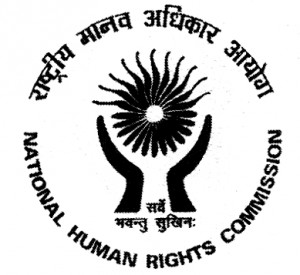In this blog post, Sunidhi, a student of the Rajiv Gandhi National University of Law, Patiala discusses how the Human Rights Commissions have failed to bring desired results of protecting the human rigths of the citizens of India.
Introduction
Human rights are those rights which every human being is entitled to by virtue of them being a human being. These are the basic rights that every human being is entitled to without any discrimination by caste, creed, color, sex, etc. These are those basic rights without which no individual can lead a dignified life. These rights are inalienable.
All the human rights, whether civil, political, economic or cultural, are interdependent and indivisible. The advancement in one will directly lead to advancement in another. Similarly, derivation of one right will automatically lead to deprivation of many other rights.
Human Rights Commission
Universal Declaration of Human Rights (UDHR), 1948 is the landmark document on Human Rights. It was the first document to put human rights in black and white. There are many other international documents supporting human rights, and most of the states have ratified such documents.
To protect human rights, the Indian Parliament passed Human Rights Protection Act, 1993 and under this Act, a provision was made to establish Human Rights Commissions (HRCs) in India. The Act made provisions for State Human Rights Commissions and one National level HRC, for those states where there is no State HRC. Although, the Indian government succeeded in creating HRCs, it failed to give them appropriate powers to function properly and stop human rights violation in India.
Lack of power
The Human Rights Commission of India is the powerless organization which is duty bound to stop human rights violation but has no power to stop it.
- The main problem of the Human Rights Commission is that they can only make a recommendation to the government. For example, they can only recommend that a criminal case should be filed against the accused, the departmental inquiry should be instituted against government official if he/she is delinquent in performing his/her duties or granting compensation to the victim. Also, it is not binding on the government to adhere to the recommendation of the commission. In the majority of the cases, government either partially adheres to their recommendation or out right neglects it. Therefore, it should be given adequate power to institute a suit against the accused and punish government officials for their inefficiency.
- As per the Act, the Commission cannot take cognizance of a matter if the time gap between happening of an event and filing of the complaint is more than one year. In a country like India where there is widespread unawareness, how can this law be beneficial to the public. The time span should be increased so that the general public can benefit from what is meant for them. Also, the Act can serve its purpose.
- 55% of cases in the HRCs are filed against police officials. Civil society groups should be mobilized to keep a check on the efficient working of police officials and their misbehavior with the civilians. Also, there is a need to implement a new Police Act as the present police act belongs to the year 1861. It was made by Britishers to oppress Indians. Hence, a new Police Act should be drafted according to the changed scenario.
- The Human Rights Commission has no authority to investigate matters where army officers are the culprits of human rights violation. Human rights are basic rights essential for survival, then how can army officials be allowed to violate such rights? Therefore, they should also be brought under the ambit of the Human Rights Commission.
- Most of the Commissions do not have all the 5 members to run it. This hampers their working. For example, at present Punjab State Human Rights Commission is running without a Chairperson. As a result, it fails to operate because the bench cannot decide a case in the absence of a chairperson. This leads to delay in delivering justice. Therefore, the succeeding Chairperson and other members should be appointed before the existing member retires. This will bring efficiency to the appointment of the Chairperson and other members and would not hamper the working of the Commission.
- The commissions are not provided with required funds, and this directly affects their working. Most of the funds provided to the commission are spent on office expenses and in the salaries of the members. The funds, therefore, are not used for what they are meant. To avoid this, commissions should be provided with enough funds for the sole purpose of existence. The salary and other maintenance expenses of members should be paid separately out of government funds.
- These commissions work in a bureaucratic way. For example, the staff appointed for these commissions is the retired government officials. So, this develops a hierarchy in the organization system in HRCs. Young blood should be infused in such commissions who can bring fresh perspective in this changed scenario.
- The second highest number of cases registered with HRCs is women related. Therefore, one of the members should be a woman.
- The Act specifies that the retired judges should be appointed as chairpersons. The result is any judge whether he is experienced in human rights or not may become a chairperson. Therefore, only those judges should be appointed as chairpersons who have at least 10 years of working experience in human rights.
- A bureaucrat fills the non-judicial member’s post. This position should be reserved for human rights activists who have at least 10 years of working experience in human rights.
- The service matters are excluded from the jurisdiction of HRCs. This is the hub where humans face discrimination the most. Therefore, this should also be covered under the jurisdiction of HRCs.
- HRCs do not take cognizance of private party disputes. Sometimes, these are the most heinous cases of human rights violation. For example, a rape survivor files a case in HRC for violation of her human rights but because she has not filed a police complaint, her case will be not be heard. Therefore, a very serious case will be rejected, and this defeats the basic purpose of the commission.
Hence, the Human Rights Commission should be given adequate powers so that they can serve the basic purpose for which they are established.
 Serato DJ Crack 2025Serato DJ PRO Crack
Serato DJ Crack 2025Serato DJ PRO Crack












 Allow notifications
Allow notifications


